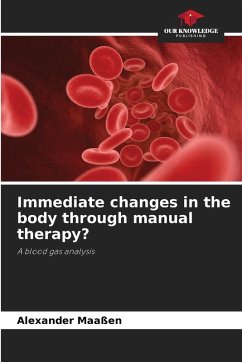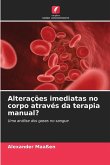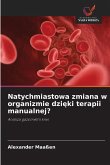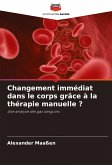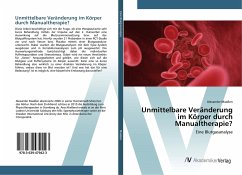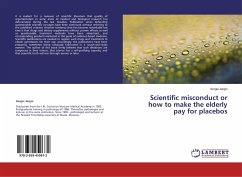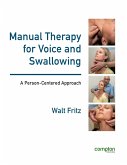This study investigates whether a very short therapeutic treatment involving two pulses to the second cervical vertebra has an effect on blood composition or the blood buffer system. To this end, 21 test subjects were examined in an RCT study before and after receiving either the active treatment or a placebo, using blood gas analysis. The blood gas analyses were read using the Epoc system and evaluated in correlation analyses with pH. The evaluation method takes into account individual buffer capacities and stress levels. This provides a new understanding of 'stress' and clarifies how it affects blood gases and buffer systems in the body. So can such a short treatment really lead to a direct change in the body that can be measured in the blood? And what does this mean? Is it possible to demonstrate physical relief?
Bitte wählen Sie Ihr Anliegen aus.
Rechnungen
Retourenschein anfordern
Bestellstatus
Storno

